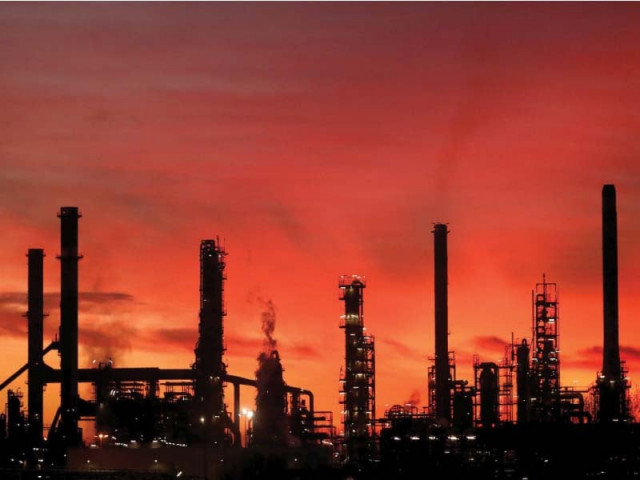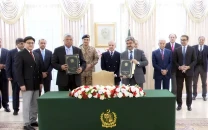Oil crisis brews as depots run dry
OMCs reportedly generated Rs12 billion due to inventory gains during recent increase in oil prices

The government on Tuesday feared oil crisis as retail outlets of some oil marketing companies (OMCs) were reportedly found dry at a few locations in the country.
Keeping in view this situation, the Petroleum Division called upon the Oil and Gas Regulatory Authority (Ogra) chairman to take regulatory action against those companies operating dry retail outlets.
In a letter dated September 12, Oil Director General Imran Ahmed informed the Ogra chairman that the energy minister had taken serious notice of the development, and directed that the regulatory authority may mobilize its enforcement team to ensure that all OMCs keep their retail outlets wet and well-supplied with the petroleum products.
Referring to the Ogra/Oil Companies Advisory Council (OCAC) daily reports, the DG oil’s letter also highlighted that the country currently possessed sufficient stocks of petrol (MS) and high-speed diesel (HSD), stressing that any attempt to hoard petroleum products must be strongly discouraged and curbed.
The letter emphasized that regulatory action may be taken against any OMC maintaining stocks lower than mandatory requirement to stave off any potential countrywide shortage of petroleum products.
The DG oil also forwarded the critical directive to OCAC secretary general and the Oil Marketing Association of Pakistan (OMAP) chairman.
Read more: Oil marketers seek resolution of road freight, Sindh cess issues
It is pertinent to note that the prices of petroleum products have soared to record high and there is a likelihood that the caretaker government may consider further increase in fuel prices for the second half of September.
Due to the expected hike in oil prices, some of the petrol pumps in a bid to gain more inventory benefits, at the end of every fortnight, are used to the practice of seeking additional quantity of petroleum products when the oil prices are estimated to go up.
This proactive approach reinforces the government's willingness to protect the interests of the people, especially at a time when the global energy prices are on the rise, acts as a forceful disincentive to the possible hoarding activities.
By cracking down on OMCs that fail to adhere to the regulatory requirements, the government aims to maintain stability in the petroleum product market, ultimately benefiting the consumers who have been bearing the brunt of skyrocketing oil prices for a long time in the country.
According to sources, the petrol stocks were counted at 416,000 metric tons and high speed diesel at 460,000 metric tons until the filing of this report.
The sales for the first 10 days of September was suppressed as 18,000 metric tons of petrol was sold per day whereas 13,000 metric tons of HSD was consumed per day.
The licensing conditions require the OMCs to maintain oil stocks for 20 days but during the past several days, they reportedly failed to maintain the inventory.
On receiving reports that the OMCs were not maintaining the required stocks and that their retail outlets had been running dry, the Petroleum directed Ogra to action against them.
Sources said that the country had enough stocks of oil as big oil companies like Pakistan State Oil (PSO) and Shell were maintaining sufficient stocks. However, there are some small companies that are not keeping up with the inventory.
Secondly, the price of petrol is also expected to increase again by up to Rs15 per litre. Therefore, the petroleum dealers have started hoarding oil stocks to make inventory gains.
Sources said that during the recent revision of oil prices from September 1, the government had not passed on full impact of increase in the price of diesel, and therefore, the move resulted in exchange loss of Rs10 per litre. The government will pay this amount to the oil companies during the next revision of oil prices.
Due to the exchange loss, some OMCs did not place order for oil imports, claiming that they were facing financial crunch.
Sources further noted that there were issues in the opening of Letter of Credits (LCs) and therefore, some companies were facing dry out as they did not import the commodity.
On the other side, the officials observed that the OMCs had generated Rs10 to Rs12 billion inventory gains due to recent hike in oil prices with a profit of up to Rs18 per litre.
Therefore, the oil companies regarding the exchange loss did not seem to justify their stance as they faced a loss of Rs10 per litre on diesel and gained Rs18 per litre due to recent increase in oil prices.



















COMMENTS
Comments are moderated and generally will be posted if they are on-topic and not abusive.
For more information, please see our Comments FAQ